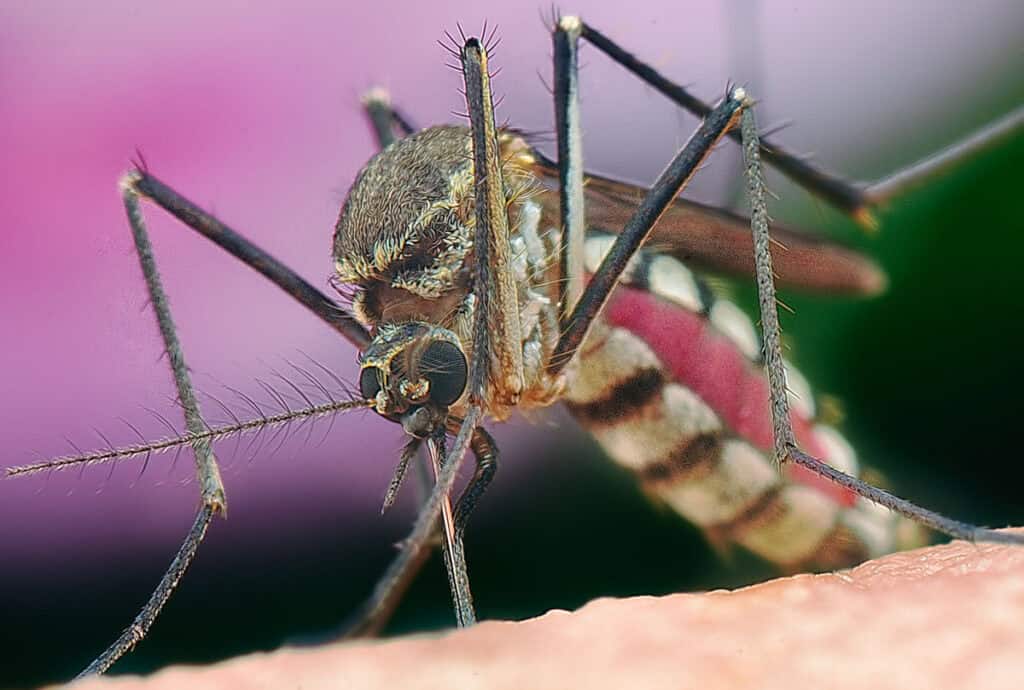Most don’t pay attention to these pests until you are bitten and left with a red, itchy mark. Besides being a nuisance, mosquitoes have shaped the course of human history through the spread of mosquito-borne illnesses. Discover how these tiny wings reigned over humans by influencing warfare, the economy, religion and even causing genetic adaptations.

Shifting the course of history in military battles
Military forces were prepared to face their opponent on the battlefield when, in reality, they had another enemy they were blindsighted by — mosquitoes. Mosquito-born diseases like malaria have decimated armies and affected war outcomes.
In the Greco-Persian wars, the Greek soldiers defeated the Persian army with the help of Anopheles mosquitoes as the Persians traversed the swamps. According to “The Mosquito: A Human History of Our Deadliest Predator,” the Anopheles transmitted malaria to the Persians, leading the Greeks to victory.
This was not the only case of these tiny bugs affecting the course of war. The Nazis weaponized them in World War II when they flooded the Pontine Marshes in Italy to create a swamp that attracted malaria carrying mosquito species. The Politics Life Science journal details that although the act of biological warfare did not stop the Allied advance, it did cause outbreaks that harmed soldiers on both sides and among the Italians who returned to the area afterward. These pests may be small but can cause far-reaching damage that shouldn’t be underestimated.
Shaping culture and religion
Ever wonder how things spread in popularity in the old days? Now, with the internet, food challenges and delicious recipes like cheeseburger casserole can become a global sensation in an instant. But how about in the times before the internet was even a thing? How did aspects of life like religion become so widespread across the world?
This may come as a shock, but mosquito diseases have influenced the spread of religions like Christianity. Christianity was believed to have the ability to treat people affected by mosquito diseases, and its healing reputation led to the rise of this religion across Europe. Who knew that bugs could influence belief systems?
Changing genetics and influencing colonization
It’s fascinating how the human body can evolve to adapt to different conditions. Populations constantly exposed to mosquito-borne illnesses experienced genetic changes over time. Among Africans, sickle cell mutations became prominent; people with this condition have red blood cells that make it difficult for malaria parasites to infect, according to the Economic Journal. Although this mutation protected people against malaria, it also came with complications that shortened lifespans.
Compared to the African populations, which had gained some genetic protection against these diseases over generations, Europeans struggled to survive in Africa’s harsh disease-riddled environment. This kept the Europeans away from this region until they learned how to extract quinine from tree bark to use as a medication to treat malaria.
Weakening the economy of low and middle-income countries
These tiny pests have caused financial damage beyond your wildest dreams. According to the JMIR Research Protocols, the global cost of mosquito-borne diseases totals a shocking $12 billion per year.
The high economic cost is a result of a few factors. Low and middle-income countries are breeding grounds for mosquitoes due to poor hygiene and water quality. This leads to a vicious cycle, as these countries have limited universal health coverage, leading the people to bear the costs of malaria treatment on their own. These health expenses are a large financial burden, costing households 25% of their income, which further impoverishes these populations. This, along with lost productivity negatively affects a country’s GDP.
The ongoing battle against mosquitoes
The process of modernization didn’t only involve transitioning from using horses to cars or from foraging for food to being able to order Chick-fil-A nuggets from a drive-through. Advancements in technology also led to the development of innovative solutions to combat mosquitoes and the diseases they spread.
Oxitec is leading the forefront of gene editing, where genetic engineering is used to produce male mosquitoes that pass on a lethal gene to their mate, causing the female offspring to die. Female offspring are targeted as only female Anopheles mosquitoes can spread malaria.
Another solution is to use natural predators such as copepods, which are a type of crustation. Their food source is mosquito larvae, and so cultivating more copepods helps manage and even eliminate the local mosquito population, according to the Journal of the American Mosquito Control Association.
If you find that you’re usually a target to mosquitoes, try essential oils to keep the pests away. Cinnamon is not just good for baking delicious goods like cinnamon pie. The Scientific World Journal states it also works effectively as a natural mosquito repellent in oil form. However, if you’re traveling in a region where disease-carrying mosquitoes are common, chemical mosquito repellent should be used along with other safety measures.
Tiny wings that should not be underestimated
These pests are more than just annoying with the itchy bites they leave behind. They have changed the course of battlefields, had a hand in the rise of Christianity, driven genetic adaptations and devastated economic systems. However, despite their persistence, technological and scientific developments have significantly advanced mosquito control. Innovative solutions are being successfully explored, leading to a hopeful future where mosquito-borne illnesses will be eradicated.
Mandy Applegate is the creator behind Splash of Taste and three other high-profile food blogs. She’s also co-founder of Food Drink Life Inc, the unique and highly rewarding collaborative blogger project. Her articles appear frequently on major online news sites and she always has her eyes open to spot the next big trend.